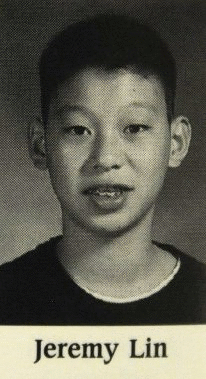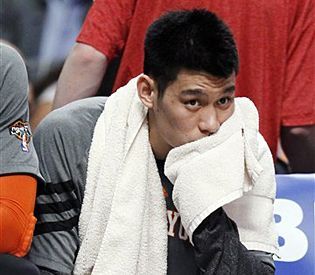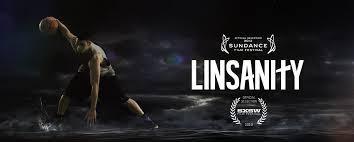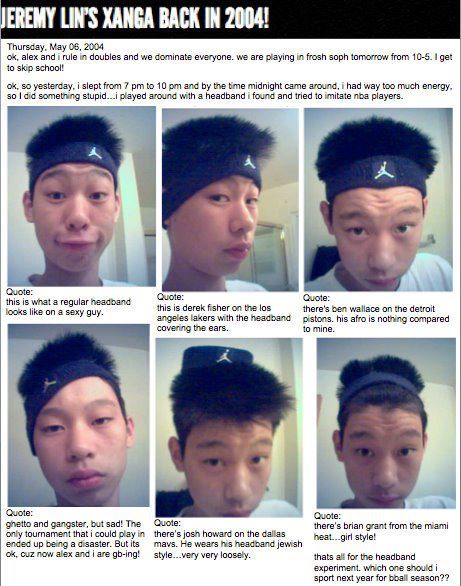Jeremy Lin: Towards A Frank Discussion of the Asian American Experience
While New York City and the basketball world at large was swept up in the hysteria of Linsanity last spring, I was studying in Madrid, Spain, largely oblivious to the meteoric rise to fame of the young Asian American point guard. But I began to understand his significance when my mother name-dropped him while we spoke over Skype one day. That she, a 60-year-old Chinese American woman with no interest in sports, was following Lin was a testament to the fact that among Asian Americans, Lin was (and is) more than just a basketball player.
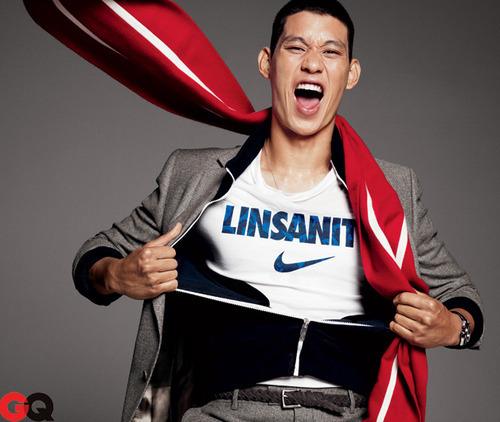
It is commendable that Lin has begun to speak out about his experience as an Asian American star in a national sports industry in which such athletes are so severely underrepresented. In his recent and much talked about feature in 60 Minutes, Lin spoke to the barrier that he believed his ethnicity played in terms of his recruitment (or lack thereof) by colleges and the NBA despite posting strong numbers in high school and at Harvard. Asked why he received little attention from Division 1 colleges despite being named Northern California Division II player of the year, Lin stated: “Well, I think the obvious thing is—in my mind is that I was Asian American, which, you know, is a whole different issue but that’s—I think that was a barrier.” Lin later made reference to the racially-tinged insults that he has faced throughout his career from opponents on the court, ranging from jokes about Asian food and his skin color to the invocation of ethnic slurs.
The attention Lin’s statement has garnered not just in the Asian American blogosphere, but from popular media as well, is indicative of his capacity to spark a long-needed national discussion on the stereotypes and discrimination that categorize the Asian American experience. New York City chef, writer, and Taiwanese American Eddie Huang, influential in his own right, tweeted in response to Lin’s 60 Minutes feature that “No Asian American has more power to bring attention to [the issue of racism] than him”. Huang is not exaggerating. It is hard to think of any Asian American—indeed, any Asian—with the same star power as Lin. As such, he has the unique potential to challenge all sorts of traditional ideas about the place of Asian Americans in U.S. society.
To imply that Lin is the NBA’s Asian Jackie Robinson may be an overstatement. However, he has no doubt shattered certain stereotypes about what an Asian American man can excel at. But he has the opportunity to do more. While I was pleased to hear that Lin was opening up about the struggles he has faced, I was frustrated that the conversation was so superficial. Referencing the discrimination he has faced is a start, but it is only a start. There is such potential for the discussion to dig deeper, and to challenge the long-held stereotypes of docility, introversion and book-smarts that have long been invoked to categorize the “model minority”.
Such stereotypes have certainly been roadblocks on Lin’s path to success. Unsurprisingly, the spotlight of Linsanity made Lin a magnet for all sorts of racial scrutiny, jokes, and jeers, not just from fans and critics, but from high level media outlets. Fox Sports columnist Jason Whitlock tweeted disparaging comments about Lin’s perceived sexual prowess, perpetuating frustratingly persistent stereotypes about Asian masculinity. ESPN.com ran its infamous “Chink in the Armor” headline after Lin struggled in a high-profile game, suggesting a popular obliviousness to a history of discrimination that is disturbing, if not surprising. Even Ben & Jerry’s jumped on the bandwagon, unveiling their new flavor “Taste the Lin-sanity”, which featured “oriental” ingredients including lychee swirls and fortune cookie pieces.
These high-profile barbs are only one iteration of the pernicious stereotypes and perpetual “other-ing” of Asian/Pacific/Americans that linger in the 21st century. Indeed, it seems to me that we are in the midst of a new wave of anti-Asian sentiment in the U.S. The perceived economic threat of China and the bizarre war-mongering of North Korea have fostered xenophobia and distrust of “the East”. Hollywood has been no help, featuring recent big-budget movies harping on Asian xenophobia, as seen in the North Korean-centered reboot of Red Dawn and the recent Olympus Has Fallen, both of which have inspired many less-informed viewers to share their disgruntled thoughts on Asian Americans via social media. The Duke fraternity party, the Sam Hendrickson YouTube controversy, the still-popular NYC outlet Yellow Rat Bastard…In this context it becomes all too clear that Asian Americans continue to face significant discrimination in this country.
This is why Lin’s opportunity is such an important one. Lin has the capacity to not only challenge conventional notions of Asian American skill sets, but also to inspire young members of the community to reach beyond their own conceptions of what they can and cannot do. It is rare for young Asian American men especially to turn on their TVs and see someone who looks like them excelling in a competitive arena fueled by testosterone, strength, size and athleticism. That fact alone is empowering.
I understand that Jeremy Lin is “just” a basketball player. But he has the power and potential to influence so much more than just what happens on the court. This is a fact Lin must come to grips with. His experience and his struggle speak volumes to the Asian American experience in general. If Lin continues to open up about his own experience, he will bring much-needed attention to the issues of racism and discrimination that continue to plague Asian Americans in this modern context dominated by paradigms of “post-racialism”, the “model minority", and a popular understanding of American race relations that has only begun to come to terms with groups falling outside of the black-white spectrum. Lin has the potential to help change that, to challenge the place of Asian Americans in pop media’s imagination, to break us out from the textbooks, laptops, and science labs, behind which we are perceived to hide, and onto stages of music, sports, politics, and film that were previously thought of as off-limits—to redefine Asian Americans as an ethnic population as diverse, dynamic, and resistant to generalization as any other.
Here’s hoping that Lin can help us to to take our cause to the next level.

